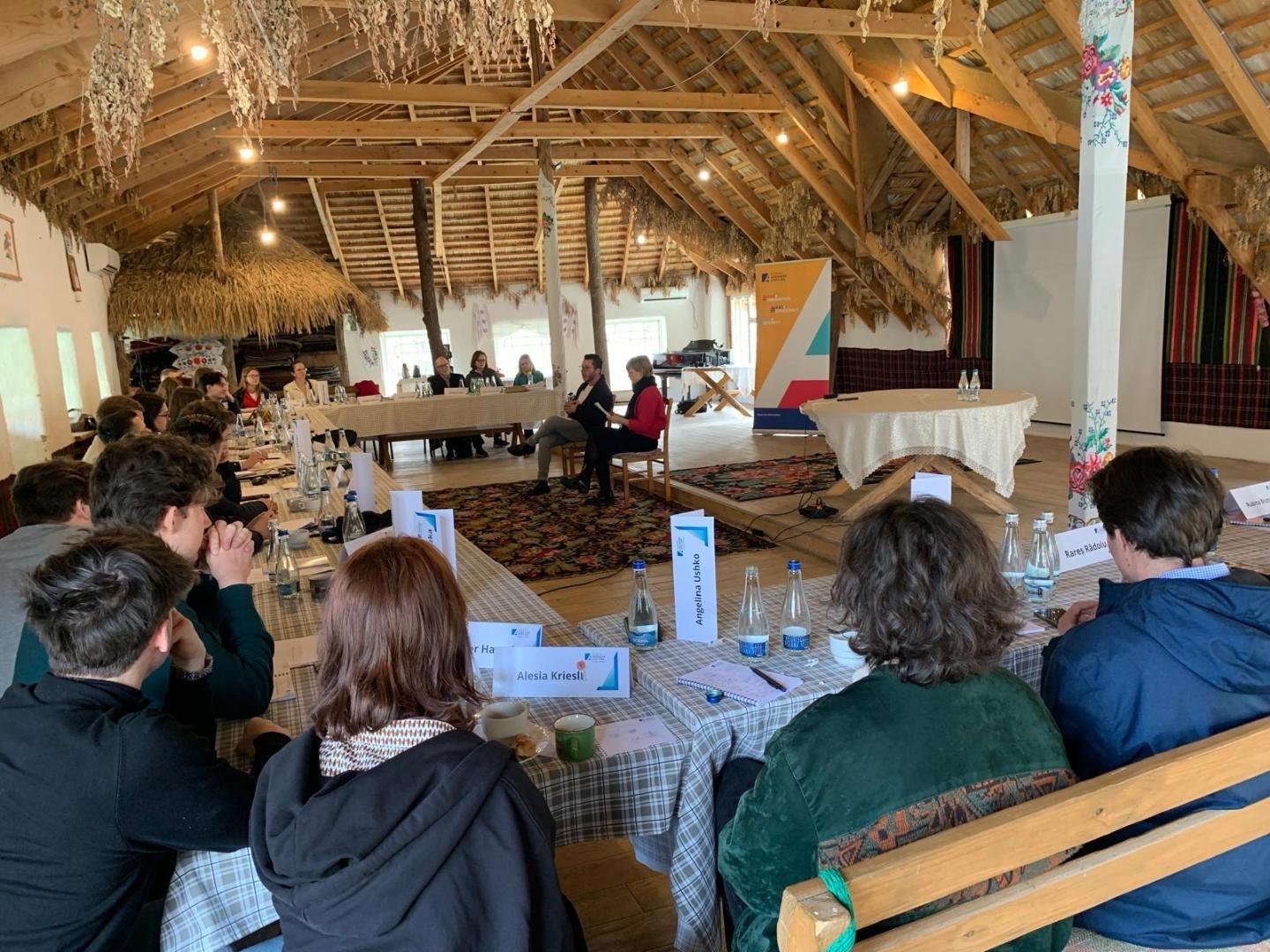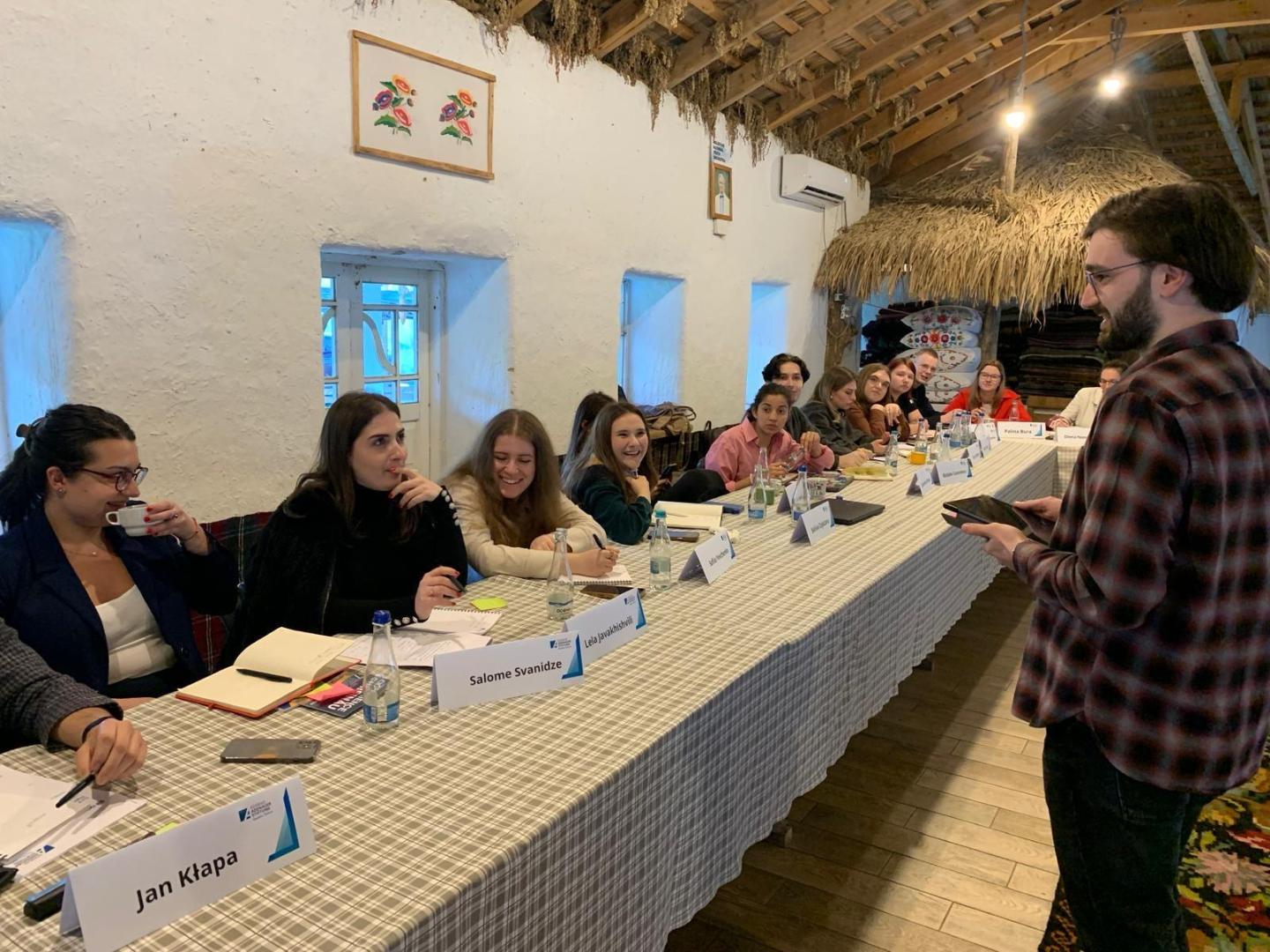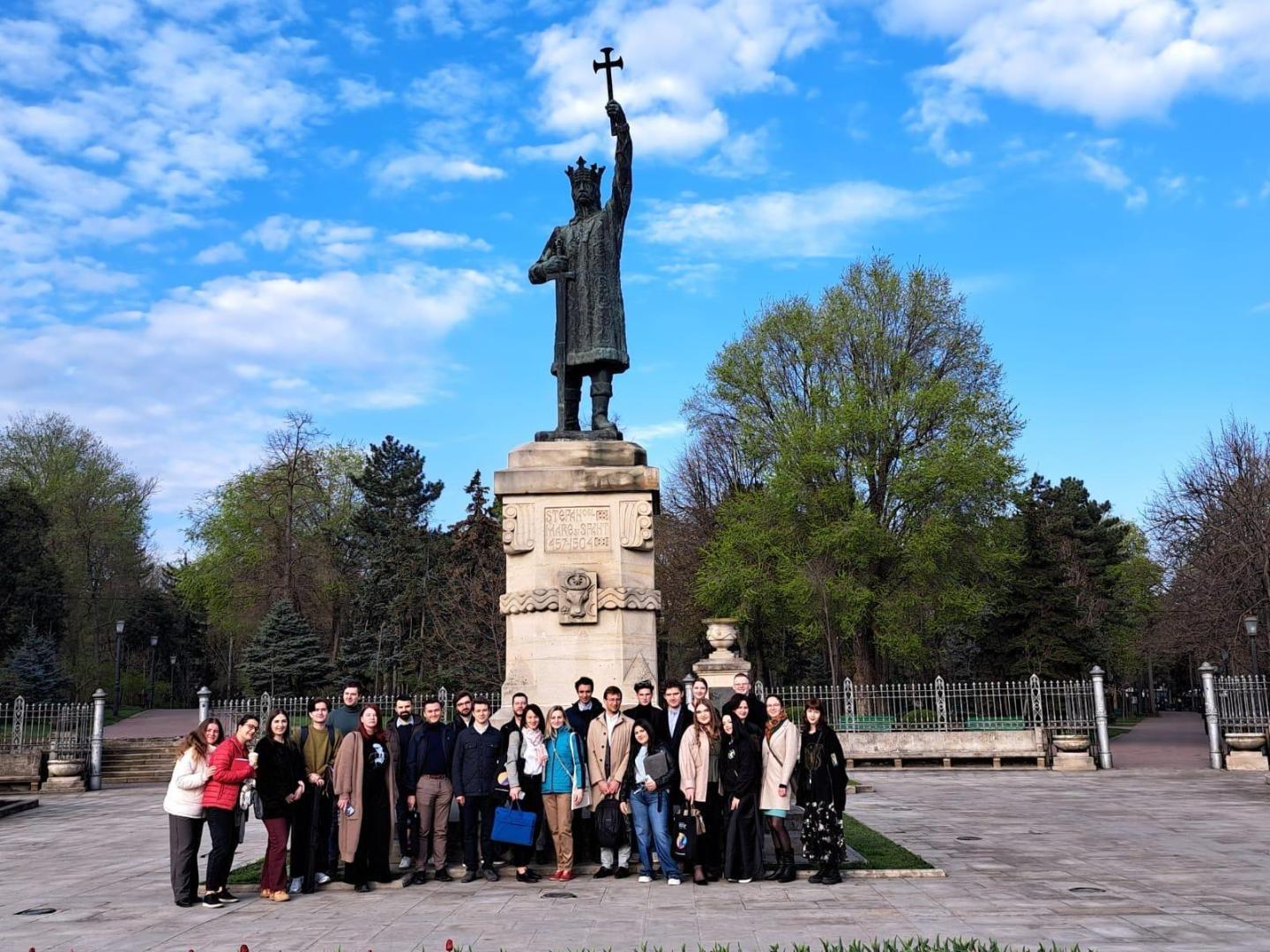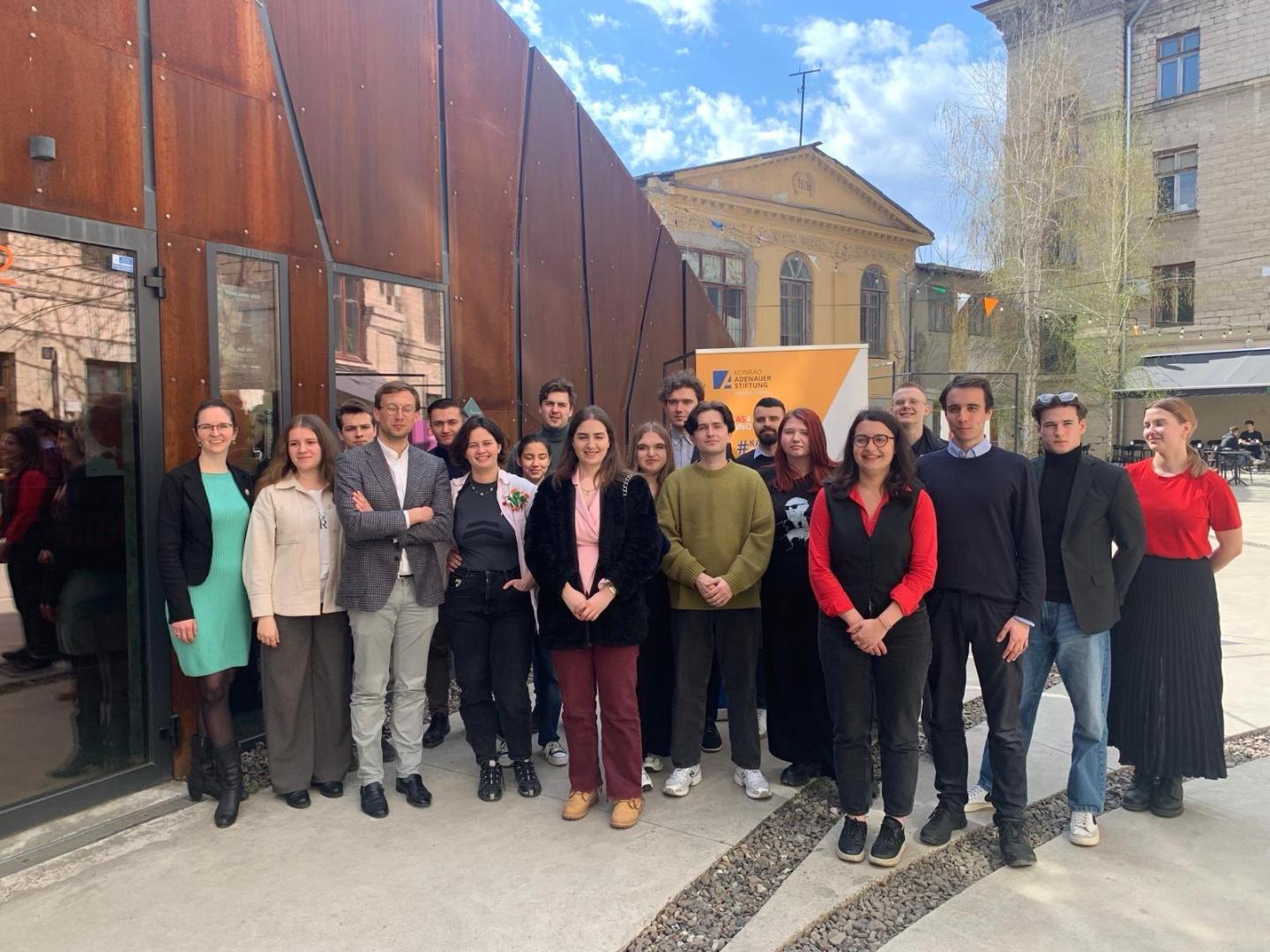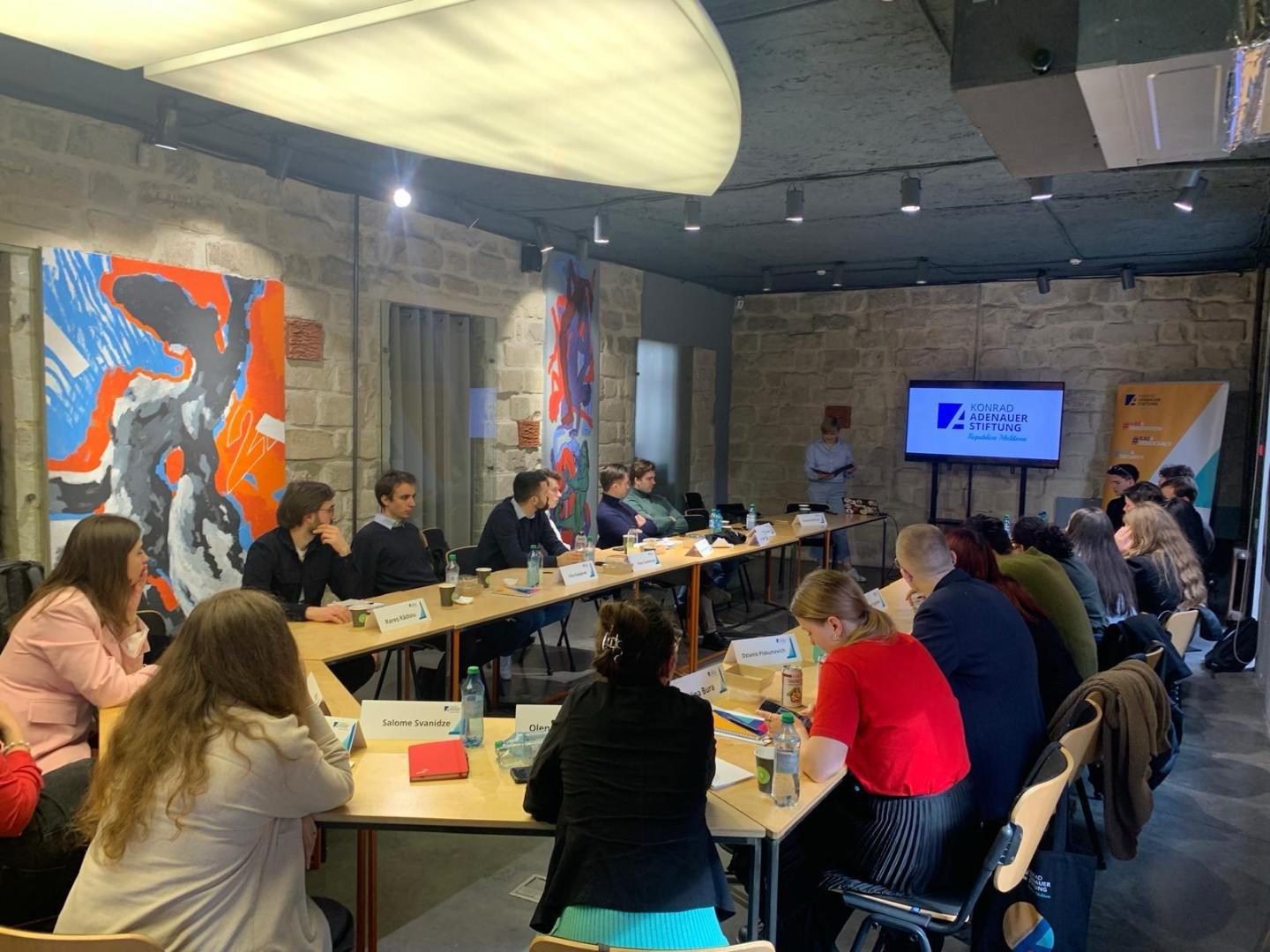Într-un context geopolitic complex și în continuă schimbare, identitatea europeană reprezintă o temă de reflecție și dezbatere esențială pentru formarea unei generatii care să susțină valorile europene și să contribuie la dezvolatrea unei Europe unite și prospere. Dar unde începe și unde se termină Europa? Cine și ce „aparține” Europei - și cine are dreptul de a decide în această privință? Care este legătura dintre „europenitate” și proiectele de integrare politică precum UE sau zona euro? Înseamnă „Europa” pur și simplu „tot ceea ce există în interiorul granițelor continentului” sau este un set de valori, idei, norme și idealuri pe care nimeni nu le poate pretinde ca fiind „proprii”, dar spre care toată lumea este invitată să tindă?
În activitatea sa atât în Germania, cât și dincolo de hotarele ei, Fundația Konrad Adenauer își propune constant să construiască punți pentru a consolida ideea europeană și a promova conștientizarea semnificației valorilor europene. Dar și pentru a reflecta asupra acestui concept. În acest sens, biroul Fundației Konrad Adenauer din Republica Moldova a invitat bursieii programului KAS Sur-Place, pentru al patrulea an consecutiv. la un nou seminar regional la tema “Identitatea Europeană”, care s-a desfășurat în perioada 4-6 aprilie 2025. Participantii editiei din acest an au fost bursierii programului Sur-Place al Fundatiei Konrad Adenauer din Armenia, Belarus, Cehia, Georgia, Germania, Polonia, Republica Moldova, Romania, Slovacia, Ucraina si Ungaria. Într-un cadru dinamic care a inclus prezentări ale profesorilor universitari, ateliere interactive și sesiuni de discuții in grup, am exploarat împreună valorile comune care definesc identitatea europeană, am reflectat asupra multiplelor fațete care o definesc și am analizat provocările actuale ale acestui concept, inclusiv pentru țările din regiune în procesul de integrare europeană. De asemenea, am folosit această oportunitate pentru a asculta perspectivele participanților noștri cu privire la ce inseamnaă pentru ei să fie europeni, pentru a-i încuraja să reflecteze asupra modului cum văd ei viitorul european și ce ar dori să impărtășească ei despre europenitatea lor din perspectiva țărilor pe care le reprezintă.
Evenimentul din Republica Moldova subliniază importanța angajamentul Fundației Konrad Adenauer pentru educația politică a tinerilor și a schimbului de idei în formarea unei identități europene solide și a unei generații care să contribuie activ la consolidarea proiectului european.



